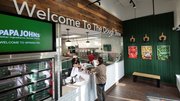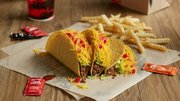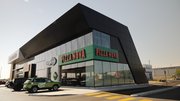News
QSR franchisees feeling pinched
October 7, 2009
Quick-service restaurant brands are trying a variety of tactics to drive traffic as the industry struggles to lure consumers into their stores. Franchisees often take the brunt of the cost of those efforts, from boosting inventory for new menu item launches to being required to reconfigure their stores for new product lines.
Franchisees sometimes must take on product lines even if they question their profitability, such as the case with Florida-based McDonald's franchisee Mike Wright, according to a story in The Wall Street Journal. Wright reluctantly installed equipment in his store for the chain's new McCafé espresso-based coffee drinks.
From The Wall Street Journal:
In Southern markets, selling hot coffee isn't easy, Wright says. "When you start selling Bubba a cappuccino, it's like trying to sell grits to a New Yorker," he says. "They forced everyone to put this in their stores regardless of profitability."McDonald's is telling its franchisees to have faith in the new menu. "Despite the economy, we are still seeing consistent growth in both our premium and value offerings," says Julie Pottebaum, a McDonald's spokeswoman.
Burger King franchisees also are wary about the impact of the franchisor's reallocation ofCoca-ColaandDr Pepper Snapplerebates from the chain's restaurant operating fund to its marketing budget. Burger King's National Franchisee Association earlier this year filed a class action suit on behalf of all franchise owners against Burger King Corp. over the decision.
Franchisees depend on the operating fund to help with rising costs, from higher taxes to the increase in the minimum wage, according to the story.
From The Wall Street Journal:
The company says it expects to allocate $25 million in 2010 and increase the sum to almost $40 million in 2012. That's roughly $5,000 to $6,000 a store each year. For [Burger King franchisee Daniel B. Fitzpatrick, who owns 116 Burger King stores in the Midwest] that amounts to a roughly $600,000 loss in the first year alone. "Times are tough; I don't have $6,000 — much less $600,000 — to give up."









